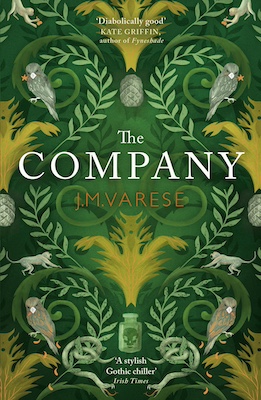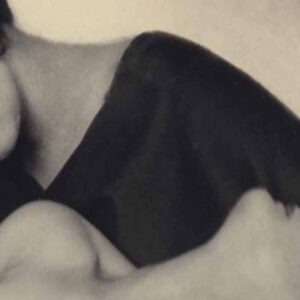
Editor’s Note
THE PRESENT WORK was discovered in an old abandoned house in Devonshire, long after the last of the Braithwhite children had passed on. The author, Lucy Braithwhite, was a person of great intelligence and kindness, known for her work in medical charities during the later years of her life. But why a young woman of her persuasion and station would feel compelled to record something of such unspeakable horror and obscenity remains a mystery. The story is as infernal as the ideas and events that it suggests. It should have gone to ashes with its author, and should never have been found or read.
The reader is therefore advised to proceed with caution. What tricks lie in this narrative are never evident or foretold. Indeed one of the only reasons to read it, aside from that of satisfying the most morbid of curiosities, is to find out, at long last, the explanation for the horrible thing – the abomination – that was discovered when the Braithwhite house in London was finally opened up again. At the time it was assumed that what was found upstairs was some macabre and unexplained relic of the family’s complicated history. But now, with Miss Braithwhite having detailed the whole account herself, one can understand that much darker influences were at work.
That is, if one can manage to believe any of it.
The year, it appears, is 1870, for the writer makes some reference to events that took place during that time. One cannot be entirely sure, though, as there are so many distortions and evasions in this narrative that the grounding in any particular year must be treated with suspicion.
Tavistock, Devonshire
1903
***
Chapter 1
FATHER BEGAN BRINGING us down to Devon when we were children. The business of the company drew him many times a year. ‘Lucy,’ he would say to me, ‘you must take care to watch out for your brothers. Though John is older and Tom is slight, they are boys and they are bound to be reckless.’
He could be so grave when he gave a warning.
‘There are bogs. There are dangers.’
But there were heavens too. The moorland – that heaven – beyond the Devon house was the place that as children we were forever wanting to escape to. We were children. We had freedom. Though I would always have less. And in the patterns of the rocks and hills, I remember the two boys running. Or rather, one is running, and one is falling behind, threading a path through the browning heather. He stops and turns his head. Our eyes meet and we smile. A hill and a boy – the simplest of patterns – and an immense sky that runs deep with no colour.
But that is a fanciful story, and not the one that I must tell. Because our family was the company, and the company was about something different.
We lived in a very fashionable neighbourhood of the city – not far from the Harley Street doctors, whom father often wished had taken up their residence somewhere else. Our house was a corner house, so that we had windows on two sides of some rooms, and that was important because it meant that the light hitting the walls could be extraordinary when the day was good. Father chose the house very carefully because of this. To him, there were two ‘houses’ to Braithwhite & Company. The counting house, which was down on the Strand, and the other house – the house we lived in. Both were ours.
As children, we of course all lived upstairs in the nurseries, alongside the servants. But some years after father died, John settled into one of the rooms on the first floor. It was father’s old study, set towards the back of the house, just below mine, and once John turned of age, that’s where we conducted much of the family business. The room’s paper was of a dark emerald green, and it contained things shaped like leaves, and leaves shaping themselves into vines, and strange winding serpents that curved into rivers. It had been father’s favourite. As a girl I’d seen angel wings somewhere in that dense forest, and John had picked out monkeys and pineapples. There was no telling what might emerge from any of these old-line relics – the intricate, deceptive patterns that our father’s father had made famous.
But where to begin? I think not with a history of Braithwhite & Company, or a discussion of any of the wallpapers that made our triumph and our downfall, but rather with that last correspondence from our company’s manager, Mr Luckhurst, and the other fateful letter that followed. That, to me, is where this wretched story begins – when strange stirrings within me, unrecognised at the time, began revealing the horrible course that I would eventually be forced to take.
How I loathe what I would need to become, but even then there was no stopping it.
I was twenty-four, and everything at that time was in predictable order: the designs for the new patterns had just been finalised; the sample books, as well, were being drafted based on the early designs; and interest from the London stores was not merely steady, but increasing, as our competitors had never been able to match our vibrancy of colour. That last bit had everything to do with Mr Luckhurst – or at least I thought so – who, over all these years, had kept Braithwhite & Company at the top of the heap.
Our dear Mr Luckhurst. How, as a child, I had adored him. And what would any of us ever have done without him? ‘I trust you and your mother are continuing well,’ he wrote in that last letter, ‘and that John’s health is as constant as we can expect it to be.’ For while Mr L was not of a morbid disposition, he was also not a man who sweetened his words. Which makes more sense to me now, of course: the less he said, the better. In my childhood, though, he was the kindest of gentlemen – a confirmed bachelor who seemed always to have too much affection to give.
I remember once throwing my arms about him, and brushing my cheek against his soft, white whiskers. My seventh birthday, the year after we had lost father. The doll’s house was the most exquisite thing I had ever received, fully furnished of course, and outfitted with samples of our papers. There were tiny dolls inside too – a family somewhat like ours. Mother and father in the drawing room. A girl and a boy upstairs in their bedrooms. And on the top floor another little doll in its brightly papered nursery.
In the girl’s room, on the second floor, the wallpaper looked delectable enough to eat – a mélange of peaches and berries and cherries, all intricately connected by melon vines. In my innocence, I touched the sun-like orange of one of the peaches, and some of the pigment rubbed off onto my finger. I put my finger to my tongue. Would the powder taste like peach? Would the flavour come from the walls? Were my new dolls to have so much deliciousness?
But no sooner had I licked the dust than I felt the air around me shift.
‘Now my sweet Lucy,’ Mr Luckhurst said, placing his hand upon mine, and moving it away from my mouth. ‘You must never, ever do that.’
I looked at him.
‘Never,’ he repeated. ‘You must never taste the papers, no matter how delightful they might appear.’
It was a different kind of scolding – one I remember more for its sympathy rather than its harshness. And of course it means something different to me now – something different from what it ever could have meant back then. He was protecting me from danger. His hand upon me, the gentlest of hands. Letting me know without knowing.
Mr Luckhurst was the man we trusted above all others. He was our saviour, and he was my favourite. But John was of course his favourite, and that I could not mind. Because John, after all, was the one who would some day run the company. This had been understood for as long as any of us could remember, and John, even then, couldn’t help but reveal a distinct awareness of his own fate. How much more difficult it must have been then, for Mr L to observe John grow into a man over the years, and at the same time be forced to accept that not everything would turn out as it seemed. If Mr Luckhurst had one unfortunate flaw it was this: he did not always want to see what was right there in front of him because he lived, like so many respectable men of his time, strictly according to the rules.
In the end, that did not serve any of us well.
__________________________________


